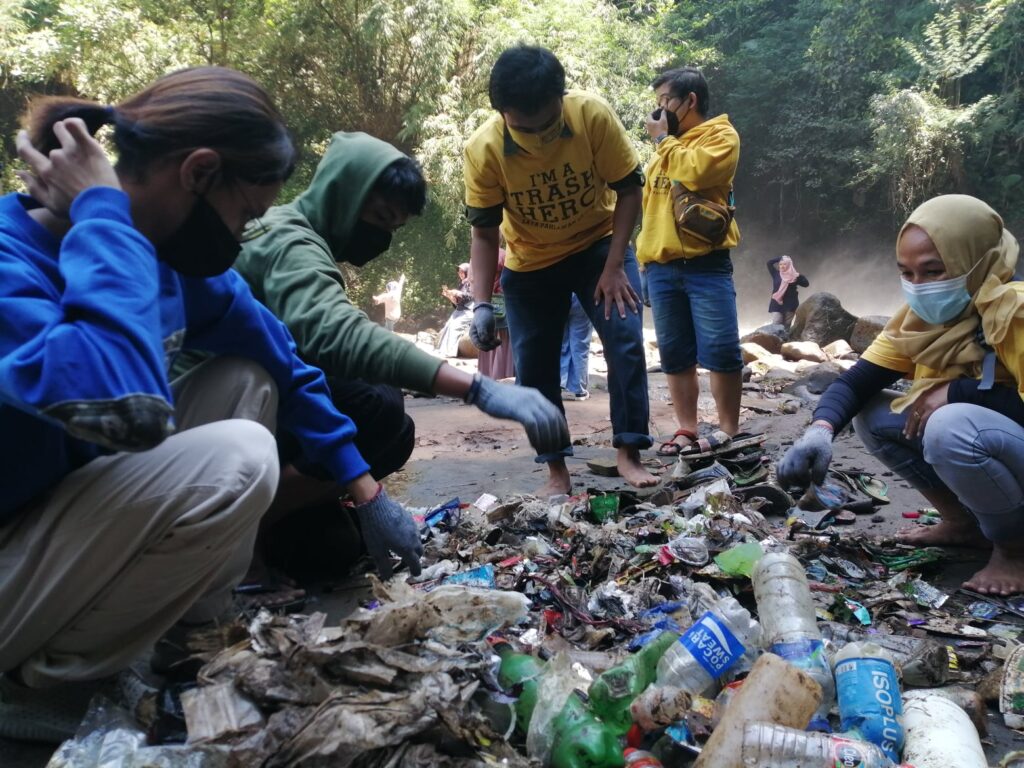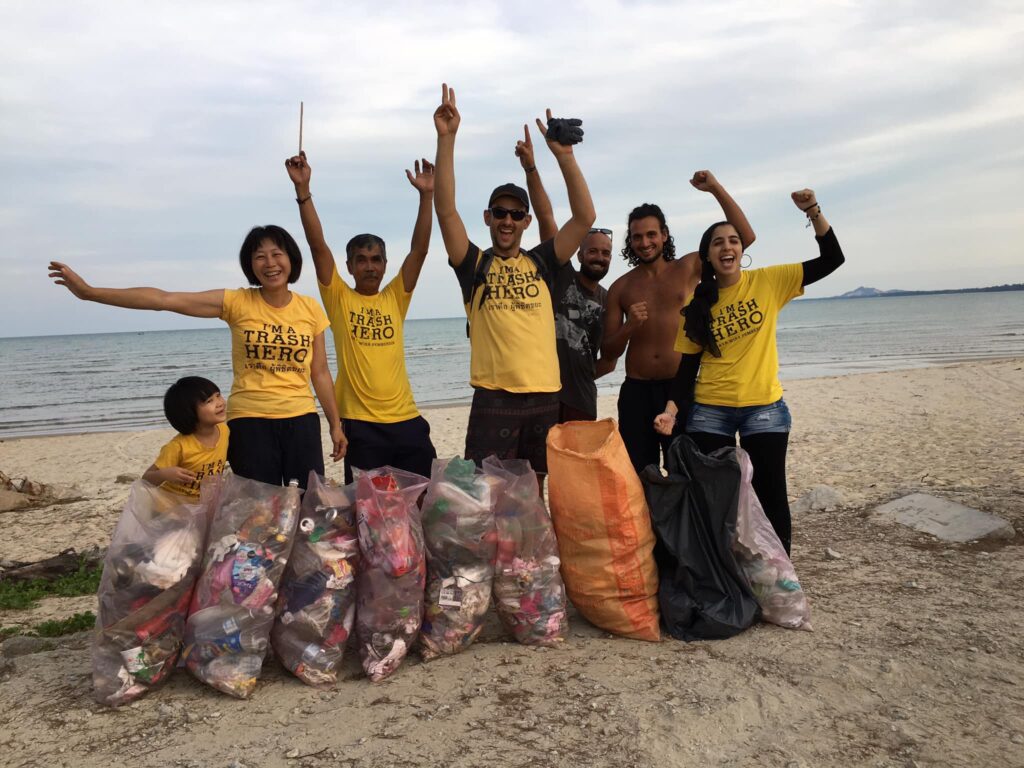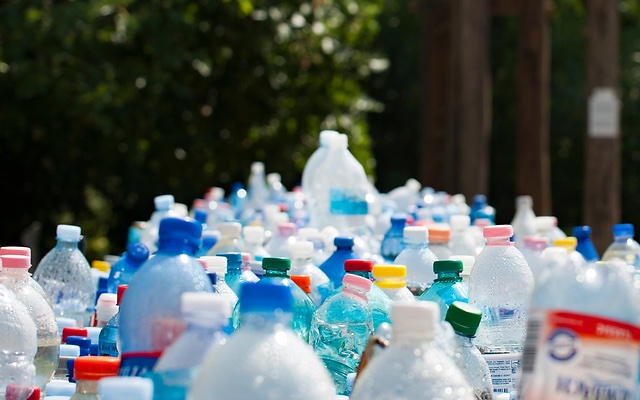“With every product sold, we’ll recover 1kg of ocean-bound plastic. Together, we can stop plastic pollution”
Have you ever seen a claim like this? We have. As a network that organises thousands of cleanups every year, Trash Hero is often approached by companies offering so-called “plastic offsetting”. We are offered cash for trash, in return for joining a “plastic credits” scheme.
The plastic credits industry is experiencing rapid global growth, with plastic producers queuing up to be certified. With a contribution to a middleman – like Verra or Plastic Bank – they can buy themselves “plastic neutrality”, supposedly achieved by balancing a portion of their production with a collection of plastic waste.
Trash Hero has always refused to take part in these schemes. Why? Let’s delve deeper into the concept of plastic credits and the impact they have on plastic waste.

What are plastic credits?
Plastic credits are tradable certificates that represent a specific amount of plastic waste, typically 1 metric tonne per credit. This waste has either been recycled, picked up as litter or prevented from entering the environment. It can be made up of any type of plastic and can be from any location worldwide, but is typically “ocean-bound”, meaning it was collected within 50km of a coastline.
The credits are issued by third party brokers that manage the collection or recycling, authenticate the origin and track sales to avoid fraud. Each broker has its own set of rules, standards and pricing for credits and there is currently no regulation of the market.
The credits confirm the amount of plastic “recovered” in the buyer’s name and entitle them to claim several different things:
- Their products, made from the same quantity of plastic, are “plastic neutral”
- Their products, if the credits are for recycled material, are made from “recycled plastic” (even if actually made from virgin plastic).
- They are helping to solve the plastic pollution problem, despite continuing to produce plastic that is toxic and polluting.
This is problematic in many ways.
Permitting “business as usual”
Plastic offsetting allows companies to say they are doing something about the problem, while continuing to produce plastic. It is easier and cheaper to buy plastic credits than to implement packaging and delivery systems that would reduce their plastic output – widely recognised as the only real means of stopping pollution.
The credits, and the marketing around them, give the false impression that something is being done about the crisis and reduce public pressure to build alternative systems.
Do they really balance?
Different types of plastics possess unique physical and chemical properties that influence their environmental impact. But with plastic credits, there is no principle of “like for like”. Can a tonne of plastic water bottles removed from an urban dumpsite really offset the production of a tonne of low-value plastic sachets that can never be recycled and might end up in the ocean? Or a fast fashion clothing line that releases microplastic fibres into the air and water during use? These decisions are in the hands of the brokers.
What happens to the waste that is collected?
This is another issue that complicates the “offsetting” calculation. “Recovery” of plastic waste has no universal definition, and in practice has been shown to include disposal in open dumpsites and various methods of incineration – all of which have serious, long term impacts on the climate and human health. In our experience, most waste that is collected from nature is mixed, contaminated or degraded and only a small percentage can be recycled – or, more likely, downcycled.
Even in the ideal case, plastic never ‘disappears’ when it is recovered. Clean PET bottles may be recycled once or twice at best, then must be landfilled or incinerated. It is misleading to suggest recovery of any sort can negate the impact of creating new plastic destined to meet a similar end, just a short while later.

Challenges with additionality
Additionality refers to the concept of demonstrating that the waste collected through plastic credits is in addition to what would have been collected anyway, without the credits being purchased. This is not the case if credits come from trash collected by existing waste pickers, or that is diverted from going to an existing recycling programme. However, this is nearly impossible to check or adjudicate. There is a worrying lack of independent standards, transparency and oversight in the industry.
Perpetuating waste colonialism
Aside from the issues of calculation, plastic credits raise significant social and ethical considerations. The majority of companies participating in these schemes are large corporations located in developed countries, predominantly in the Global North. Whereas most, if not all, of the projects that collect plastic waste are based in less developed countries, primarily in the Global South.
By purchasing these credits, corporations take advantage of cheap labour costs and more lenient environmental and health and safety regulations. This dynamic perpetuates an already unfair situation. Waste workers and waste pickers in less developed countries of the Global South continue to bear the harmful consequences of handling low-value plastic waste that is often exported from developed countries in the first place.
For all of these reasons, Trash Hero will never take part in any plastic offsetting programme.The goal of our cleanups is to engage and educate the community to reduce waste, not to enable plastic producers to greenwash their image and continue creating trash for us to pick up forever.
You can read more about the issues of plastic credits on the Plastic Solutions Review website, GAIA’s Plastic Neutrality briefing or watch the Break Free From Plastic webinar here

Note: all Trash Hero cleanup participants are volunteers and do not receive any form of financial compensation, including expenses, for their work.


1 comment
Join the conversationLuca - 18/07/2023
I am so proud to be part of trash Hero family, all I do, all I read, ald I see, give me confidence that things can change, need time , some time i thing to mutch time, but beside a continuos groth of the production of poisoning materials, it is a growing coushiosness about what each one of us can do to neutralise at best the negatve impact of this products on envirennement, and at the end in living beens. Thanks to exist Trash Hero, end keep going provide us tools to improuve our will to live in a better world.